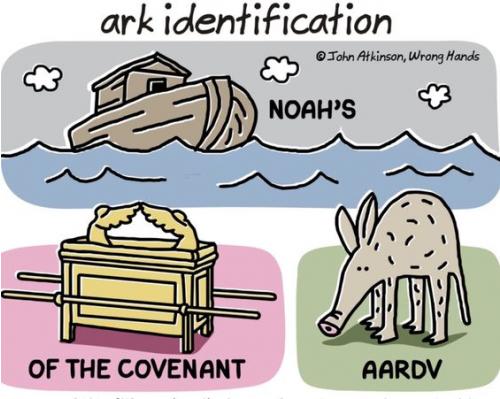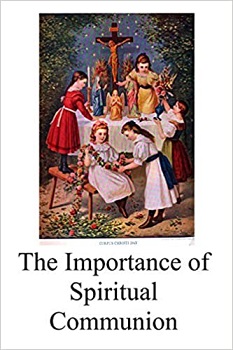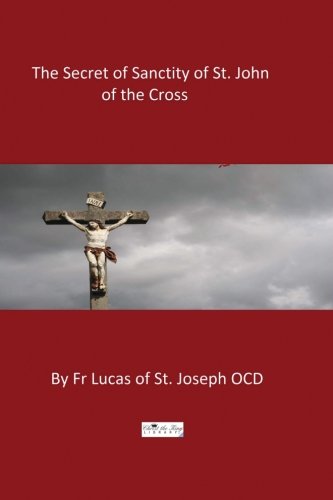August 2022: Olive Tree

Volume VII/Issue 5/August 2022


From The Editorial Desk
Who am I?
I have no respect for justice. I maim without killing. I break hearts and ruin lives. I am cruel and malicious and gather strength with age. The more I am quoted, the more I am believed. I flourish at every level of society. My victims are helpless. They cannot protect themselves against me because I have no name and no face. To track me down is impossible. The harder you try, the more elusive I become. I’m nobody’s friend. Once I tarnish a reputation, it is never the same. I topple governments and ruin marriages. I destroy careers and cause heartache and sleepless nights. I wreck churches and separate Christians. I spawn suspicion and generate grief, make innocent people cry on their pillows. Even my name hisses. I am gossip.
Fifteen hundred years ago Pope Gregory the Great classified the sins that cause humanity to stumble (the 6th century). He looked at every sin mentioned in the Bible and boiled them down to 7 categories of sin. His list of 7 sins is known as The 7 Deadly Sins. The 7 deadly sins are pride, anger, indifference, envy, greed, lust, and gluttony. The 7 deadly sins include nearly every kind of human sin imaginable. But there is a deadly sin that failed to be included in the list of the 7 deadly sins. The 8th deadly sin is gossip.
All the sins of the tongue are deadly. Profanity, insults, lying negativism, complaints, and criticism are all harmful. Gossip is a particularly deadly sin. Gossip has destroyed more people, tarnished more reputations, broken more friendships, and split more churches than any sin I’m aware of. Gossip is quickly told, quickly heard, and quickly spread. Worst of all, gossip is quickly believed. People will confess to theft, adultery, even murder. But no one confesses to gossip.
The book of Proverbs warns us of the deadly allure of gossip as well as its deadly effects over and over again. Proverbs 18:8 says, “The words of a gossip are like choice morsels; they go down to a man’s inmost parts.” Whether we admit it or not, we have a fascination with gossip. That’s why talk shows and grocery store tabloids are so popular. Proverbs says gossip is like a tasty morsel that we like to savor. Gossip is like a hot fudge sundae made with Blue Bell ice-cream. Gossip is like peach cobbler with real whipped cream. Gossip is like steak and lobster. Gossip is like an all you can eat buffet with a desert bar. We can’t get enough of it.
Not only does Proverbs warn us that we have a perverse attraction with gossip. Proverbs also warns us of the corrupting effect of gossip. When we listen to gossip, it goes to our “inmost parts.” Gossip sinks its teeth into our hearts, souls, and minds and corrupts us like a fast spreading cancer.
We know what gossip is when we hear gossip or when we speak gossip. But we don’t often take time to define words like gossip.
We want to see what God’s Word says about gossip. Let’s take a moment to consider the meaning of gossip and its sister words as the Bible uses them. It helps us to know the meaning of the words as they are used by Jesus and His apostles in the Greek New Testament. Simply put, “gossip” is talking about people behind their backs.
The New Testament Greek word for “gossip” (psithuristes, Romans 1:29) is literally “a whisperer” — a person who whispers behind your back with the intention of hurting you. The Greek scholar Godet describes a gossiper as someone who pours out his poison by whispering in our ears. With the telephone, we don’t even have to whisper behind people’s backs. We just badmouth them over the phone without their knowing. With the advent of E-mail, and social media, gossip spews forth through the Internet onto the computers in our homes and work places.
The Bible links gossip and slander together as sister sins (Romans 1:29-30). The New Testament word “slander” (katalalos) means “to speak evil of someone.” When we gossip, we speak evil about people; we badmouth them. The King James Version describes people who gossip and slander people as “backbiters” (Romans 1:30). When we badmouth someone with gossip, we bite them behind their backs, whether the gossip is true or not. All too often we can be like Dennis the Menace who whispered in his neighbor’s ear, “Now listen good. I can only tell you this once ’cause my Dad told me not to repeat it.”
I. The Origin of Gossip
Gossip is like a tasty morsel that we like to hear. The question is: Where does gossip originate? In a number of Scripture passages, the Lord informs us about the origins of gossip so that we will avoid it.
Gossip is fueled by hell’s flames
Gossip is one of Satan’s fiery arrows that he shoots at us and entices us to shoot at others. The Lord doesn’t mince words in James 3:6 when he tells us about the origin of the sins of the tongue: “The tongue is a fire, a world of iniquity: so is the tongue among our members, that it defileth the whole body, and setteth on fire the course of nature; and it is set on fire of hell.”
The flames of hell ignite gossip. Satan is behind all gossip, either directly or indirectly. When we listen to gossip, we give the devil a foothold in our lives. When we speak gossip, we’re speaking as Satan wants us to speak. As the old saying goes, “A gossiper is the devil’s postman.”
Gossip originates from the evil in our hearts
In Luke 6:45 Jesus tells us, “The good man brings good things out of the good stored up in his heart, and the evil man brings evil things out of the evil stored up in his heart. For out of the overflow of his heart his mouth speaks.” Jesus tells us that our words reveal what is in our hearts. Gossip comes from a heart full of evil. Insults come from a heart full of evil. Criticism comes from a heart full of evil. When we allow our sinful natures to control our hearts, evil fills our souls, and evil spews out of mouths.
Gossip can be the result of hatred
In Psalms 109:3 the Old Testament King David said of his enemies, “With words of hatred they surround me; they attack me without cause.” When we allow hurt, anger, bitterness, and rage to live in our hearts, we entertain thoughts of hatred, retaliation, and revenge (Ephesians 4:31). One way that we vent our anger, bitterness, and rage is through gossip. We wound people behind their backs by badmouthing them. We retaliate by shooting people in the back with verbal bullets. Unless we find comfort for our hurt and resolution for our anger, we often vent our hurt and anger with our tongues.
Gossip is a product of idleness
1 Timothy 5:13 tells us how idleness can lead to gossip: “Besides, they get into the habit of being idle and going about from house to house. And not only do they become idlers, but also gossips and busybodies, saying things they ought not to.” People with too much time on their hands often become gossips and busybodies. As the saying goes, “Idle hands are the devil’s workshop.”
Sometime ago the LA Times carried a horrific story about a college student who visited a prostitute. As his lips approached hers, she moved a razor, hidden in her mouth, between her front teeth. With two quick swipes, she cut off his lips. Gossip is a razor blade in our mouths.
II. The Trouble with Gossip
Gossip is always trouble. Gossip obscures the truth. Gossip drives us from God. Gossip ruins reputations. Gossip destroys relationships. Gossip divides churches. The trouble with gossip is …
Gossip is incredibly destructive
James 3:6-8 says, “The tongue also is a fire, a world of evil among the parts of the body. It corrupts the whole person, sets the whole course of his life on fire, and is itself set on fire by hell. No man can tame the tongue. It is a restless evil, full of deadly poison.”
Gossip is a wild fire gone out of control. We try to put it out. We try to control it. But the gossiper keeps pouring gas on the fire. Like a forest fire that is beyond control, gossip takes on a life of its own. The story grows and changes the more the gossip is spread. The story even grows within the mind of the gossiper.
Not only is gossip a wild fire. Gossip is “full of deadly poison.” It’ll make you so miserable that you will wish that you were dead.
Gossip is a characteristic of unbelievers
Romans 1:29-30 describes the lives of unbelievers who have shunned God: “They have become filled with every kind of wickedness, evil, greed, and depravity. They are full of envy, murder, strife, deceit, and malice. They are gossips, slanderers, God-haters, insolent, arrogant and boastful; they invent ways of doing evil; they disobey their parents.” Gossip and slander belong to unbelievers who have rejected God. When we gossip, we talk like people who have rejected Christ.
Gossip spreads falsehood
Ephesians 4:25 says, “Therefore each of you must put off falsehood and speak truthfully to his neighbor, for we are all members of one body.” When we gossip, facts are distorted. Lies are spoken as truth. Half-truths are heralded as gospel. Gossip may have an ounce of truth to it. But gossip is usually combined with a ton of lies. People often have the attitude, “Don’t bother me with the facts. My mind is already made up.” Half-truths and misunderstandings are turned into unbelievable stories.
Gossip separates friends
Proverbs 16:28 says, “A perverse man stirs up dissension, and a gossip separates close friends.” In a few seconds gossip can ruin a friendship that took years to build. Not only does gossip ruin friendships. Gossip can do great harm to a church.
People leave churches when they believe gossip. People leave churches when they have been wounded by gossip. Churches have split over gossip started by a single person. Proverbs 6:19 tells us that of the 7 sins God hates, the sin God hates the most is stirring up dissension among His people.
A grandmother was saying bedtime prayers with her two grandchildren. She said, “Tonight, we’re going to talk about sin. Do you know what sin means?” Seven-year-old Keith said, “It’s when you do something bad.” Four-year-old Aaron’s eyes widened, “I know a big sin Keith did today.” That’s how gossip works. We see the speck in our brother’s eye but ignore the log in our own.
III. The Antidote for Gossip
We know that gossip originates with Satan. We know that gossip is a product of our sinful nature. We know how incredibly destructive gossip is. Now we need to consider God’s antidote for gossip.
Overlook an offense
Proverbs 17:9 says, “He who covers over an offense promotes love, but whoever repeats the matter separates close friends.” Overlooking an offense is an act of love and friendship. It is also a sign of Christian maturity. Christians can be too thin skinned. We can wear our feelings on our shoulders. We need to develop rhinoceros thick skin.
Churches are a family. Sometimes family members offend family members. Don’t be surprised when it happens. We’re too quick to get offended. We’re too quick to tell others about how another church member offended us. It’s wrong! God’s says to overlook the offense. If you must talk about the offense, talk to the person who offended you, and that person alone.
Don’t listen to gossipers
Proverbs 20:19 tells us, “A gossip betrays a confidence; so avoid a man who talks too much.” Did you hear that verse? Don’t listen to gossipers and their gossip. God’s word says, avoid the gossiper. When someone begins to gossip to you, tell them plainly, “I don’t want to hear any gossip. We don’t want gossip hurting our church.” Don’t worry about offending them by telling them you don’t want to hear any gossip. Gossipers need to be put in their place.
Confront gossipers
If someone gossips about you, Jesus tells us how to confront them in Matthew 18:15-17.
First, speak to the person one-on-one. If that doesn’t work, bring a couple of spiritually mature Christian friends with you to confront them. We must confront people with the right facts and the right spirit. Ephesians 4:15 tells us, “Speak the truth in love.”
Watch your tongue carefully
Ephesians 4:29 says, “Do not let any unwholesome talk come out of your mouths, but only what is helpful for building others up according to their needs, that it may benefit those who listen.” Watch your tongue. If your words tear people down rather than building them up, keep quiet. As my mother used to tell me, “If you can’t say anything nice, don’t say anything at all.”
A man won the million-dollar lottery. He flew with his wife to New York City for a weekend get away. They had such an argument over how to spend the money that she threatened to divorce him. In a fit of anger, he went to the top of the Empire State Building. She ran up after him, thinking he might do something crazy. Once she got to the top she said, “Honey, I love you. We can work it out.” But by the time she reached him, he had already torn the check into pieces and thrown the pieces to the ground. They got to the ground as quick as possible to gather up the pieces of the check. But it was too late. The wind had gotten a hold of the pieces. They couldn’t piece the check back together again, no matter how hard they tried. That’s how it is with gossip. Once gossip gets out, it gets out of control. Once it gets into the wind of people’s ears, there’s no way to put things back together again.
Jesus warns us about sins of the tongue in Matthew 12:36: “I tell you that men will have to give account on the day of judgment for every careless word they have spoken.” We all need to pray Psalms 141:3: “Set a guard over my mouth, O Lord; keep watch over the door of my lips.”
Update On The Death Of Pope Michael
Father Francis Dominic
Even today it is very unclear what caused Pope Michael's illness. But I will explain it as best as I can. He had always had border line high blood pressure. And loved his salty snacks. But according to the doctors that sat down with His mother and I, his blood tests showed that his bleeding on the brain was not from a life time of high blood pressure, but from recent spikes in his blood pressure. Theses spikes that he was having even while in the ICU, caused bleeding on the brain, blood with in the fluid chambers of the brain, and damage to the area of the brain that helps a person to be awake. In the end he became totally incapacitated. Meaning that he was unable to care for himself-self and he suffered from a loss of autonomy. Concerning the autonomy, he had very little movement on the right side of his body. The bleeding on the brain, from what I could gather, caused the brain to shift, "causing damage to the brainstem and the RAS (Reticular Activating System) -- a part of the brain that's responsible for arousal and awareness."
When discussing the next step in what should be done. The doctors seemed to feel they had done all they could do. They wanted to put a permanent feeding tube in. and send him home or a retirement home to care for him. His Holiness had a DNR saying specifically that he did not want a permanent feeding tube. So at that point the doctors would keep him comfortable through, what I believe is called, Palliative Sedation and move him to hospice.
Before they began the process, I as his priest, asked them to hold off for one day so that I could give him the last rites. One of the doctors, I do not know who she was, spoke out and said that their chaplain, had already come in to give him the last rites. I did not ask who he was or get any other information concerning him. To be honest, his mother and I were in the midst of making life and death plans for our dear Pope, and I was not clear in my head to ask any questions. I did say "just to be sure", I wanted to hold off Palliative Care until I came back the next day to give him the last rites.
So to answer one question, Yes, apparently, a chaplain did come in to give some form of the last rites. Although I was never given a name, or who he was, I do appreciate the basic fact that this nameless priest came and took the time to offer spiritual care.
Now to answer the next question, "Did he confessed to a diocesan priest before his death? And did he change his position, that he no longer considered himself the pope?"
The Day after Pope Michael's mother and I met with the doctors, I and my assistant, brother Stephen, gave him the last rites. As I had already said, he had damage to the brainstem and the RAS (Reticular Activating System) -- "a part of the brain that's responsible for arousal and awareness." His doctors established this fact, and I, brother Stephen, and a good friend of His Holiness, who is not a part of us but stayed near him until his death in hospice, were witness' to this fact as well. He was not able to recant, let alone respond.
Last question I would like to answer: "Is there any plans for another conclave?"
At this time we are discussing and praying about the next step. In the near future we hope to be able to answer this question.
For the most part, I will not be answering anymore questions concerning what had happen. If you know anyone with questions, please refer them to this edition of the Olive Tree. Thank you so much for your prayers.

Contentment & Stewardship
A renowned US President has said, “You can have anything you want if you want it badly enough. You can be anything you want to be, do anything you set out to accomplish if you hold to that desire with singleness of purpose.” Our society has unequivocally embraced this ideology. “Believe in yourself,” we are told. “Live life on your terms.” Can the disciple of Christ live by these maxims? Is this worldview compatible with Christ’s command to take up your cross and follow Him?
Contentment means “the quality or state of being satisfied with one’s possessions, status or situation.” Contentment is choosing to be at rest with who I am - at peace with who God has made me to be. Stewardship is “the careful and responsible management of something entrusted to one’s care.”
Why do we present Contentment and Stewardship as twin virtues? Are these principles even connected? I propose that both Contentment and godly Stewardship spring from the same worldview. They both result from accepting and believing four basic truths.
First, God is the Origin of all things.
He created this earth with its incredible bounty of resources. The splendor and abundance of nature come from His hand, with Genesis details how God brought it into existence. The Psalms illustrate how God continues to provide for the cattle on the hills, the beasts of the forest, and the creatures of the deep. (Psalms 50:10; 104:29-30). He owns the unfathomable riches of the mines and holds the immeasurable treasures of the oceans. The trillions of dollars in man's banking systems spring from the abundance of our Creator.
Second, God is Sovereign in the affairs of man.
When looking at the broad stroke of history, we easily see God’s hand arranging events. Daniel 4:17 tells us that God is actively involved in appointing the rulers of nations. But on a personal level, has God really drafted the circumstances of my life? Who arranged for Moses to be adopted into a life of power and prestige? Who decreed that Daniel would be taken hostage at a tender age? Who chose for the man in John 9 to be born blind? When we read each story in its entirety, it is obvious: God did. He accomplished eternal purposes in the lives of these chosen men. But, what about my life? Has God ordered the minutiae of my life with just as much purpose?
He has. We tend to reason that material success or failure is the outcome of personal ambition. The carnal man proclaims that his empire results from his good decisions. He says, "Genius is one percent inspiration and ninety-nine percent perspiration." From his perspective, success is nothing more than the natural law of sowing and reaping—this is a single-dimension perspective of a 3-dimensional picture. The Christian attempts to view the events of his life from God’s perspective. Can he surrender the control of his life to Christ and then attribute his success to his prowess? No, he will see the hand of God in every circumstance, good or bad.
Deuteronomy 8:18 states, “You shall remember the Lord your God, for it is he who gives you power to get wealth, that he may confirm his covenant that he swore to your fathers, as it is this day. ” Clearly, God has arranged the circumstances in our success. It is also God who brings the misfortune of our calamity (Isaiah 45:7). Even the empires built by unregenerate man are at the disposal of the Almighty (Daniel 4:25). As followers of the Lamb, we readily profess that the resources and opportunities in our hands were gifted to us by God and are therefore not our own.
When I choose to accept that the resources I have are what God has set aside for me, I will be content. My carnal nature envies my neighbor's abilities, success, and possessions. It seems unfair that I do not have what he does. Our human nature is bent toward discontentment. Yet, a discontented man makes a terrible steward. He pinches and grasps to add to his hoard when he has little. He gloats over his accumulation when he has much and employs it exclusively for his benefit. Either he puts it to work making more money, or he uses it to elevate his status in the community. A contented man, on the other hand, is a wise steward. He understands that his “ownership” is temporary. These resources are not his, and one day he will need to explain how he has used them. He cannot afford to be frivolous in his spending or careless giving. The contented man is not greedy for more since he will presently leave what he has for another. His sole purpose is to employ these goods to benefit their true Owner.
Third, our primary calling is to be the hands and feet of Christ.
Since Christ returned to His Father, we are charged to live as He would. In Luke 16:9, Christ taught His followers to use their possessions to build relationships with unbelievers. The relationships built with earthly goods create opportunities to speak the eternal spiritual Truths. We are to be rich in good works, generous to those in need, and always ready to share (1Timothy 6:17-19). The Christian is also called to be a living sacrifice for the cause of the Gospel. Does this mean he will live in poverty? It may mean that. Christ required the pious young man in Luke 12 to sell all he had to secure eternal life. This young man quickly understood the grip that possessions had on his life. Christ may call you to make the same decision: Things or the Kingdom of God. Will we prioritize corroding, tarnishing riches, or will we pursue wealth that will never decay?
The final truth is that each of us will stand before the Almighty to give a record of how we have invested His resources (Matthew 25:19). He has complete knowledge of the circumstances He provided for us. He created our personalities and preferences. He provided us with the means that we find at our disposal. He crafted the mission He intended for us. He also comprehends the obstacles that we face. On that final day, the Judge of all the earth will pronounce righteous judgment to the question: What have you done with what I trusted to your care?

Morally Pure In A Corrupt Society
We will start with a few definitions.
Moral has to do with right and wrong behavior. Pure is free from moral fault or guilt, marked by chastity, which is personal integrity. Pure contains nothing that does not properly belong and where the inside mirrors the outside.
As the title suggests, this article will be about doing right and being free from moral fault and guilt, living a life of integrity, and keeping our inside and outside free of anything that doesn't properly belong.
Notice what scripture says about being pure. Blessed are the pure in heart (Matthew 5:8). That ye may approve things that are excellent; that ye may be sincere ‘pure’ and without offense till the day of Christ (Philippians 1:10). Think on things that are pure ( Philippians 4:10). Keep thyself pure (1Timothy 5:22). Revelation 19 says the pure in heart shall see God. Psalm 24:3-4 asks the question of who shall see God. The answer is he that hath clean hands and a pure heart. In other words, it is the people who are clean inside and out that will enter His presence and see God.
Being morally pure will not happen today without strong determination and discipline. It has always been this way, but even more so today with the rise of technology and the availability of evil at our fingertips.
Sexual sins are not foreign to the Catholic Church, as we have seen over the years. In fact, they are not foreign to any people of any race. We cannot relax and let down our guard and suppose that our children will be safe from the evils of society and our humanity. We must show by example and teach our children and youth if we expect them to stay clean in this corrupt society. We cannot assume that if a person dresses a certain way that all is well on the inside. The story is not told fully by the outside. The Pharisees made the outside look good while the inside was full of corruption. In Matthew 23:26, Jesus said, Cleanse first the inside of the cup and platter that the outside may be clean also. We, too, should give primary attention to heart issues. When the heart is clean, then and then only will the outside be able to be cleansed.I John 1:6 says if we say that we have fellowship with Him and walk in darkness (light on outside and darkness on the inside), we lie and do not practice the truth. Internal darkness will always destroy fellowship and kill relationships—every time.
The message here is intended to be a message of hope, not gloom. If you have a hidden dark spot, confess it and get rid of it, you can be free! It is possible to be free from the clutch of Satan and live an open, transparent life with joy in your soul. You don't need to go through life trying to hide the darkness of evil. Jesus wants to forgive and heal.
Satan is so cruel. In John 10:10, Jesus said the devil wants to steal, kill and destroy. He wants to steal your purity, kill your character, and destroy all godly relationships. His interest is to break up your home, destroy your respect and send you to hell. All the while, he is luring you through the lust of your flesh, with his sword drawn to bind and kill you.
Moral sins are so shameful and hard to admit. The natural thing is to try to hide what we know is wrong. Children who learn to hide wrongdoing early in life naturally develop into youth who hide things from parents, school teachers, and ministers. This person will need to learn to be open and transparent, or the time will come they will be hiding things from their companion. Hiding results in a double life and leads to more bondage and broken relationships. People who have closed doors in some corners of their life will be possessive of their phones and not be willing to share their password with a trusted partner. It seems we easily forget the truth about God and how futile it is to hide from Him. Hebrews 4:13 says, Neither is there any creature that is not manifest in his sight: but all things are naked and opened unto the eyes of him with whom “we will give account to.” How can we be so naive and foolish to think we can hide anything from God? Or take it a step further: 'why would we want to hide something from Him'? God loves us too much to let us go on in a life of hiding evil. Numbers 32:23 is still very true, saying, Be sure your sin will find you out. And you can be sure of it. God loves you too much to let you keep hiding what needs to be brought out and forgiven. This message is hope to all who are tired of hiding and running.Sexual sins are also extremely deceptive. It usually happens similar to the way James described it in chapter one; we are enticed… drawn away… pulled like a magnet off-center… feel a surge of desire… make sure no one is looking and our tracks are covered… step closer to the forbidden… feel more desire… begin very quickly to lose reasoning and sound thinking… not able to calculate consequences much like an intoxicated person… then James 1:15 happens: “then when desire has conceived, it gives birth to sin, and sin, when it is finished (full-grown), brings forth death.” Verse 16 says, Don't be deceived my beloved brethren.
I think James would tell us not to follow our lusts for what isn't ours to have, not even a hint. The Bible tells us three things we should flee from. One of these is fornication which can be broadened to all sexual sins. Don't dabble with it; don't take the second look; get away from it. Replace those thoughts with upbuilding thoughts of God and His way. Start singing an old hymn; thankfully we can't think of two things at once. By all means, flee from that base desire that will take you farther than you want to go and cost more than you want to pay. Run the tape to the end, and if you follow what you are being tempted for, will you have what you want? Satan always promises pleasure, but he always delivers pain. Remember Satan has never invented a pleasure; he only takes what God made to be pure and good, perverts it and offers it back in its perverted form. Remember, his sword is drawn to kill at this point. Flee evil desires!
Don't follow your lust, not even a hint. Pornography is so addictive and has ensnared many a person. A Group called the Promise Keepers said 65% of men in their survey were addicted. It's very similar to alcohol or drugs, and so soon, an addiction is formed. They tell us that the brain is calling for endorphins to be poured into it, whether from addiction to alcohol, drugs, or porn. I emphasize again that the men and women who make it to victory will be those who, like Daniel of old, purpose in their hearts not to defile themselves.
This subject is for the ladies in the Church as well, and a few questions seem appropriate. What inside your life is tucked neatly away and hidden? Have life's disappointments caused an emptiness that taking an 'emotional Tylenol' makes you feel better for a short while? Is your emotional connection secured where God has planned it to be?
Young girls should be taught the need to develop a healthy reserve with men, not a nose in the air with never a smile, but not too free in relating to young men. Our society is geared exactly opposite of this, and from kindergarten on, boys and girls are being teased of special friendships. As a result, children grow up with little to no reserve. Socializing in messaging between genders should be avoided by all outside of family relationships. This will develop a habit in youth that will one day need to be broken if they expect to live an open, transparent life with a spouse. Think of it this way: would you want your spouse to socialize with the opposite gender on social media?
Ladies, be careful of the books you read. The romance novels will deaden the desire for the Word of God and give unrealistic expectations of married life. These books will give the idea that the right man somewhere would be your key to fulfillment and happiness in life. Only Jesus can fill the hole that sin has brought to every human being today. No man, woman, young man, or young woman will ever be able to give the security and tranquility of the soul that we all want so badly. This hurt in the heart will never be quenched by Band-Aids or pain relievers. They help only for a moment, and when they wear off, the cry of the heart is even louder. Unwholesome books will deaden a taste for the things of God, and in its place, a craving for junk food and pain relievers will grow.
Another concern to the ladies is the amount of time you spend online. There is no end to feeding the craving for finery, uniqueness, charm, and beauty. Don't let these things be the drive of your life as they will never cry out 'enough' and will do nothing for the satisfying of your soul or point your children in the right direction. Consider the amount of time hosting parties of whatever name brand they are. Over the years, I have seen names come and go of business opportunities and products that one must-have. But alas, in a few years, we cannot remember even those names, and all the while, the children were growing and by now are adults. Consider the real needs in your life and your responsibilities, and then decide which will bring eternal investments. Women with children need to limit hobbies they so much enjoy because at this moment, you are blessed with children who have never-dying souls, and time with them is an eternal investment. Remember your husband's needs, home, and children are far more worthy of your time than hosting another party and spending hours there.
So how can we all go from here and live a morally pure life, where the outside and inside are both clean?
Be Humble. James 5 says, Confess your faults one to another that ye may be healed. It takes humility and brokenness to acknowledge our needs, but brokenness is the key to victory. I Peter 5:5 tells us that God gives grace to the humble. One of the most comprehensive definitions of grace is unmerited divine assistance given to humans for regeneration and sanctification.
Regeneration is 'redeeming grace,' and sanctification is 'transforming grace.' The truth of this is that God gives 'transforming grace' to the humble. This grace changes us from the inside out, making us into His Holiness and love. This aspect of grace must be desired and sought after as much as redeeming grace was when God saved us. This is probably the single most important step in overcoming addictions of any kind. Be humble enough to make it a daily prayer to God for His transforming grace. Jesus taught in Matthew 23:26, where He said, "First clean the inside of the cup, so that the outside may be clean also."
Be Honest. Examine your thoughts, actions, temptations, the things you struggle with, anger, lust, pride, bitterness, etc. Are you as spiritual as you portray yourself to be on the outside? Strip the veneer, and admit the need for help.
Be transparent. Romans 2:16 tells of the day when God will judge the secrets of men by Christ Jesus. We are so foolish to think we can hide evil. We can for a while, but our actions will stand naked before an all-knowing God someday. Why would we try to hide something now? Again, this is a message of hope. Those hidden things can be sent before to judgment, and a guilt-free life can be a reality today. Be transparent; it must be a working goal.
Tell yourself the truth. When you are tempted, run the tape to the end. If you follow your lust and get what you are craving, will you get what you want? Will this craving be satisfied, or will it only crave for more evil? Tell yourself the truth. If you saw your brother doing what you are going after, how would it look? How will it look thirty years down the road if you follow your evil desire? Will it bring joy or sorrow then? Will it be a help to someone then, or will someone else be scarred? Tell yourself the truth before you become intoxicated and unable to make rational judgments.
Teach your eyes to bounce. You can't help what you look at the first time, but you can control what you look at twice. Make it a practice till it becomes a habit to turn your eyes in a different direction whenever you see a sight that leads to impure thoughts. It works.
Teaching our children. This should be heavy on our hearts from early childhood. If we don’t teach our children that God made us in the image of Himself, which needs to be kept pure, someone else will teach them to be secretive and make them feel impure. I read the book “God, our Children and the Facts of Life” and I think it is a good starter for parents with young children. Stay close to the children as they grow and teach them as they mature.
Keep your emotional ties in the proper place. The more this is in place, the safer you will be in keeping pure in a corrupt society, and the farther you get from this, the more vulnerable you will be to corruption. Keep your spouse the one you are tied to emotionally above all others, the one you run to first to share with, the first in your life.
The Bible tells us to flee lust and fornication. Run from it. Get away from it and stop feeding it. These cravings are addictions that must be broken. They must not be fed. Remember, what you feed grows, and what you starve dies. These addictions can be broken, but it will take feeding the relationships that God has given and starving all hurtful ones.
God has made us in a way that when we love the things He loves, our heart still has room to love more. No matter how many children and grandchildren we have or how many godly friends we have over the world, our hearts still have room to love more people. But the moment we start to love what God has forbidden, it begins to replace and destroy all other love, filling the heart with emptiness, pain, and loneliness, and leads to a bitter end.
Many a man has come to his senses and seen the utter foolishness of the path he took. Many men tried long and hard to hide impure conduct and were successful until late in life, and some even kept it hidden till after they were gone. I ask one simple question for you to ponder in the quietness of this moment and when your mind is clear of any intoxication. Is it worth it? Of course, the answer is a resounding NO! Oh, how wonderful to live an open life free of guilt and to have peace with God and the assurance of sins forgiven, so that one day we will be taken out of this present evil world and be ushered into the very presence of our Holy God.
The Funny Pharmacy
A joyful mind maketh age flourishing: a sorrowful spirit drieth up the bones. - Proverbs 17:22







Frequently Asked Questions

What Did Jesus Mean When He Said Do Not Judge That You be Not Judged?
Time and Time again people love to use the phrase “Judge not that ye be not judged” It has been misused and misinterpreted over the years.
Some of us have wrongly judged another person and have sinned in the process. In our rush to judgment, in our haste to make sure someone else takes the blame, in our zeal to find the guilty party, we have violated the words of Jesus in Matthew 7:1, “Judge not, that you may not be judged”. The words are simple and clear. They are plain and unambiguous. Because they are familiar we tend to forget about them. Or worse, we find a way to explain them away.
There are several ways we can approach a text like this. We could spend a lot of time talking about the illustration Jesus used about the speck in your brother’s eye and the log in your own eye. It’s funny and ironic and when Jesus spoke these words, I’m sure his hearers laughed out loud. I’ll return to that illustration shortly but first let’s just focus on verse 1. What exactly did Jesus mean when he said, “Judge not"?
Perhaps it is easier to say what he did not mean. Jesus is not saying we should never pass any sort of judgment. Every day we make hundreds of judgments about things around us. It is not wrong, for instance, to sit on a jury and render a verdict. Nor it is wrong for an admissions committee to decide which students to accept and which to reject. Nor it is wrong for an employer to decide who gets a promotion and who doesn’t. Nor is it wrong for schools to judge certain students worthy of high honor at graduation. Nor is it wrong for a High School to expel students who participate in hazing incidences and to ban them from attending graduation ceremonies. We all have to make decisions every day that involve other people. We pass judgment on appearance, behavior, speech, deportment, attitude, work ethic, productivity, keeping or breaking a promise, guilt or innocence, which person we believe and which person we do not believe. Whatever the words of Jesus mean, they can’t mean that we never pass judgment in any sense at any time.
What, then, did Jesus mean when he said, “Judge not?” The word translated “judge” often means to condemn. It means to come to a negative conclusion about another person and then to condemn them. That is what Jesus is forbidding. Let me be a little more specific about this.
First, we are not to pass final judgment on any person. Final judgment belongs to the Lord. If anyone needs to be condemned, God has that responsibility himself. We should have no part in it.
Second, we are not to judge the motives of others. The Bible says, “man seeth those things that appear outwardly, but the Lord beholdeth the heart. ” (I Samuel 16:7). Often we are quick to come to negative conclusions about others based on why we think they did something. But try as we might, we see only the outside. God alone sees the heart.
We can judge what people do; we cannot judge why they do it.
We can judge what people say; we cannot judge why they say it.
Only God can judge the hidden secrets of the heart. Leave that judgment to him. You don’t even know your own heart, much less the heart of anyone else. “The heart is perverse above all things, and unsearchable, who can know it?” (Jeremiah 17:9). Sometimes when little children have been caught disobeying and you ask them why they did it, they will reply tearfully, “I don’t know.” That’s not a cop-out; it’s a profound theological truth. We are so wicked by nature that we don’t know why we do what we do. All of us can remember times when we did or said something foolish, and looking back we can honestly say, “I don’t know why I did something stupid like that.” But if we can’t understand our own heart, how can we ever presume to understand anyone elses?
For answers to more frequently asked questions, click here: https://www.vaticaninexile.com/frequently_asked_questions.php
The Pope Speaks: Pope St. Gregory I
Liber Regulae Pastorlis

No one presumes to teach an art till he has first, with intent meditation, learnt it.
What rashness is it, then, for the unskilful to assume pastoral authority, since the government of souls is the art of arts! For who can be ignorant that the sores of the thoughts of men are more occult than the sores of the bowels?
And yet how often do men who have no knowledge whatever of spiritual precepts fearlessly profess themselves physicians of the heart, though those who are ignorant of the effect of drugs blush to appear as physicians of the flesh!
But because, through the ordering of God, all the highest in rank of this present age are inclined to reverence religion, there are some who, through the outward show of rule within the holy Church, affect the glory of distinction. They desire to appear as teachers, they covet superiority to others, and, as the Truth attests, they seek the first salutations in the market-place, the first rooms at feasts, the first seats in assemblies (Matt 23:6, 7), being all the less able to administer worthily the office they have undertaken of pastoral care, as they have reached the magisterial position of humility out of elation only.
For, indeed, in a magisterial position language itself is confounded when one thing is learnt and another taught. Against such the Lord complains by the prophet, saying, "They have reigned, and not by Me; they have been set up as princes, and I knew it not" (Hos. 8:4). For those reign of themselves, and not by the Will of the Supreme Ruler, who, supported by no virtues, and in no way divinely called, but inflamed by their own desire, seize rather than attain supreme rule. But them the Judge within both advances, and yet knows not; for whom by permission He tolerates them surely by the judgment of reprobation He ignores. Whence to some who come to Him even after miracles He says, "Depart from Me, ye workers of iniquity, I know you not who ye are" (Luke 13:27).
The unskilfulness of shepherds is rebuked by the voice of the Truth, when it is said through the prophet, "The shepherds themselves have not known understanding" (Is. 56:11); whom again the Lord denounces, saying, "And they that handle the law knew Me not" (Jer. 2:8).
And therefore the Truth complains of not being known of them, and protests that He knows not the principality of those who know not Him; because in truth these who know not the things of the Lord are unknown of the Lord; as Paul attests, who says, "But if any man knoweth not, he shall not be known (1 Cor. 14:38).
Yet this unskilfulness of the shepherds doubtless suits often the deserts of those who are subject to them, because, though it is their own fault that they have not the light of knowledge, yet it is in the dealing of strict judgment that through their ignorance those also who follow them should stumble. Hence it is that, in the Gospel, the Truth in person says, "If the blind lead the blind, both fall into the ditch" (Matt. 15:14). Hence the Psalmist (not expressing his own desire, but in his ministry as a prophet) denounces such, when he says, "Let their eyes be blinded that they see not, and ever bow thou down their back" (Ps. 68:24).
For, indeed, those persons are eyes who, placed in the very face of the highest dignity, have undertaken the office of spying out the road; while those who are attached to them and follow them are denominated backs. And so, when the eyes are blinded, the back is bent, because, when those who go before lose the light of knowledge, those who follow are bowed down to carry the burden of their sins.


St. Francis de Sales' Introduction to the Devout Life

CHAPTER VI
The First Purification, namely, from Mortal Sin.
THE first purification to be made is from sin;—the means whereby to make it, the sacrament of penance. Seek the best confessor within your reach, use one of the many little books written in order to help the examination of conscience. Read some such book carefully, examining point by point wherein you have sinned, from the first use of your reason to the present time. And if you mistrust your memory, write down the result of your examination.
Having thus sought out the evil spots in your conscience, strive to detest them, and to reject them with the greatest abhorrence and contrition of which your heart is capable;—bearing in mind these four things:—that by sin you have lost God’s Grace, rejected your share in Paradise, accepted the pains of Hell, and renounced God’s Eternal Love. You see, my child, that I am now speaking of a general confession of your whole life, which, while I grant it is not always necessary, I yet believe will be found most helpful in the beginning of your pursuit after holiness, and therefore I earnestly advise you to make it. Not unfrequently the ordinary confessions of persons leading an everyday life are full of great faults, and that because they make little or no preparation, and have not the needful contrition. Owing to this deficiency such people go to confession with a tacit intention of returning to their old sins, inasmuch as they will not avoid the occasions of sin, or take the necessary measures for amendment of life, and in all such cases a general confession is required to steady and fix the soul. But, furthermore, a general confession forces us to a clearer self-knowledge, kindles a wholesome shame for our past life, and rouses gratitude for God’s Mercy, Which has so long waited patiently for us;—it comforts the heart, refreshes the spirit, excites good resolutions, affords opportunity to our spiritual Father for giving the most suitable advice, and opens our hearts so as to make future confessions more effectual. Therefore I cannot enter into the subject of a general change of life and entire turning to God, by means of a devout life, without urging upon you to begin with a general confession.
Saints from East and West

11 August - Saint Alexander the Charcoal-burner, Bishop of Comana, Martyr (A.D. 275).
The Christian community of Comana in Pontus having grown to be sufficiently large to require a bishop, Saint Gregory the Wonder-worker, Bishop of Neocaesarea, went thither to preside at the election. He rejected all the candidates put forward by the clergy and people, especially one who was favoured because of his high birth and wealth, reminding them that the Apostles were poor and common men. Whereat a wag exclaimed, "Very well then. Why not appoint Alexander the charcoal-burner?" Saint Gregory, knowing that the Holy Ghost was as likely to make Himself heard by means of this sarcastic suggestion as any other way, was moved to send for the said Alexander, who presented himself all dirty and blackened from his trade. Gregory looked at him and saw through the grime and the rags; he took him aside and questioned him, and soon discovered that Alexander was a man of good birth and education, who had given away his goods and taken up this trade the more literally to follow Christ; the Roman Martyrology says that he was "a most learned philosopher," though there is no reason to think that anything more is meant by this than that he was a man of wisdom. Saint Gregory accordingly put Alexander forward, he having signified his willingness, as his own choice for the vacant see, it was ratified by the people, and the new bishop was consecrated. Saint Gregory of Nyssa, who relates this happening, speaks highly of Saint Alexander as a bishop and teacher. He eventually gave his life for the faith, being martyred by fire. Saint Alexander was naturally revered as a patron of charcoal-burners.

17 August - Saint Myron.
The Holy Martyr Myron was a priest in Achaeia (Greece), and lived during the Third Century. He suffered in the year 250 under the emperor Decius (249-251). The priest was gentle and kind to people, but he was also courageous in the defense of his spiritual children. One time, on the feast of the Nativity of Christ, he was celebrating Divine services. The local governor Antipater came into the church with soldiers so as to arrest those praying there and to subject them to torture. Seeing this, Saint Myron began heatedly to plead for his flock, denouncing the governor for his cruelty. The saint was delivered over to torture, - they took him and struck at his body with iron rods. They then threw him into a red-hot oven, but the Lord preserved the martyr - at the very moment when about 150 men at a nearby pagan temple were scorched by the oven fire. The governor then began to demand the martyr to worship idols. Having received from Saint Myron a firm refusal, Antipater ordered the leather thongs to be cut from his skin. Saint Myron took one of the leather thongs and threw it in the face of his tormentor. Falling into a rage, Antipater gave orders to strike Saint Myron all over his stripped body, and then to deliver the martyr over to wild beasts for devouring. But the beasts would not touch him. Perceiving himself defeated, Antipater in his blind rage committed suicide. They then took Saint Myron to the city of Kizika, where he was beheaded by the sword (+250).

Advice You Can Bank On
A Catholic Perspective On Finances
Spiritual Discernment of Your Finances
With the great loss we all experienced this month at the passing of our beloved Pope Michael, it's difficult to segue into the topic of finances. Nevertheless, we have a spiritual responsibility in times of sorrow. In both times of consolation and desolation, we should wait to make decisions that are in a state of peace.
Do you have spiritual discernment over your finances, or do they have spiritual discernment over you? Truthfully, I have never thought about finances in a spiritual sense before.
My husband and I recently sought counsel from a family member on a decision we were going to make about a large purchase – whether or not we should do it, and what we should look for in the event we decided to go through with it. She replied, “Well, you shouldn’t finance it – it’s God’s money, not yours. You should pray on it.”
Another admission: I had never thought about the money I had as God’s money. It made sense what she was saying, and it was good advice. This puts a different spin on a better way to think about money and is aligned in the following paragraph.
If given a job where you must purchase items, you typically search for the best price, or put a bid out for a contract you’re sourcing. In this scenario, being worried about going over budget and what your boss might have to say about it is probably what keeps us from overspending. The knowledge of what someone else has to say about our decisions when it comes to a company stops us dead in our tracks. Some companies even have a system in place to prevent anyone from spending over a certain limit by having to get prior approvals, or downright not allowing it at all. It’s not typical that we do these things in our own homes, however.
Our boss in our spiritual lives, however, is God. Yet we might not look at things that way when it comes to our finances and budgets. In terms of sinning, we might think twice about our actions or words, as we realize the consequences of such actions, or that having to confess it might be really embarrassing, thus saving ourselves from the pain of sin altogether. But do we think of that same pain when it comes to our wallets? Probably not. Unless sinning is directly related to the money we spend, overspending isn’t typically that is something to be brought up in confession.
As we’ve discussed before, the difference between spending only cash versus using a credit card can be anywhere between 12%-18% higher, all the way to 100% more. In realistic terms, taking $100 cash to the grocery store means that you will not spend more than $100. If you take only a credit card, you could easily spend $200 for that same trip. Your credit card company certainly isn’t going to judge you.
It’s easy for us to overspend anywhere, depending on our engrained habits, our mood that day, or both. Sometimes unexpected things occur, such as a sudden death, which allow us to justify overspending or spending past our budget. Even when something is completely expected, like your wedding anniversary, it can be easy to justify, in exuberance, a large expense for a romantic weekend getaway. In terms of cash, this is difficult. But with a credit card, your only limit is what the bank gave you, in a sense.
We must have spiritual discernment and a plan regarding our finances; maybe especially regarding our finances. We all have good days, and we all have down days. We should not let our mood, whether it be good or bad, dictate what stays in our bank accounts, or what goes.
St. Ignatius of Loyola said, “Let him who is consoled see to humbling himself and lowering himself as much as he can, thinking how little he is able for in the time of desolation without such grace or consolation. On the contrary, let him who is in desolation think that he can do much with the grace sufficient to resist all his enemies, taking strength in his Creator and Lord.”
When we are spiritually high, we can easily justify going out and spending money when we know we shouldn’t be. Likewise, we can justify just as well spending money when we are spiritually low for a “pick me up”. I’m certainly guilty of “retail therapy”. I’m also guilty of going out because I’m bored, or I feel good. The problem is with either of those two thoughts – high or low – is that they never allow for us to break the pattern of justifying to ourselves our own bad habits. The truth is, we can always find an excuse.
For the word of God is living and effectual, and more piercing than any two edged sword; and reaching unto the division of the soul and the spirit, of the joints also and the marrow, and is a discerner of the thoughts and intents of the heart. (Hebrews 4:12)
Planning our finances around the unexpected and expected is paramount to overcoming the highs and lows that life will inevitably send our way. Being prepared to spend when the time comes is much different than spending because something has happened, good or bad. Take time to plan for what you know may eventually come, and for what you don’t (i.e. emergency fund).
Be also prepared to decline an invitation if you have not budgeted for an unexpected event. Making sound decisions in a state of peace is the key to spiritual discernment of your finances.

 Family Matters
Family Matters
The Heritage Of the Generation To Come Pt 2
From our article from June 2022 Olive Tree, we saw, in verses five and six of Psalms 78, a beautiful picture of four generations. It says, He commanded our fathers,” That's one generation. “That they should make them known to their children,” That's the second generation. “That the generation to come might know them, even the children which should be born,” That's the third generation. “Who should arise and declare them to their children.” That's the fourth generation.
These verses, as well as others we will study place the focus of the father on at least two generations He is to turn his attention primarily on his own children. However, as he is training them, his sights also are looking ahead to the children that will be born to his children, and even to their children's children. His heart must be seeing and saying, “I need to so train my children that they will rise up and train the ones to come.” The dedicated fathers in Israel followed these precepts, and those who did, received the reward of Godly generations, just as God said. When God gives a command, He has in mind that it will bring results. In this article we will see, from the Bible the examples of families who had this kind of results.
In the article from July 2022, the genealogy listed in the book of Matthew described an amazing line of godly men. When we were studying these men, I hope you began to understand why David was a man after God's own heart. The seeds were being planted for two hundred years.
Now, Let us look at another generation of Men
Abraham: called the friend of God, the father of all who live by faith. He walked before God, and was perfect. He had a son named Isaac, who was the son of promise.
Isaac: the promised seed. He trusted God by yielding up his life to his father. He spoke prophetic blessings upon Jacob his son, which most assuredly came to pass
Jacob: the supplanter who wrestled with God all night and became Israel, the father of the 12 patriarchs. God called him a prince who had power with God and men. He was given a son named Joseph, who preserved Israel.
Joseph: dreamer of godly dreams, and preserver of life for all Israel. This pure, godly servant became a king in Egypt. He had a son named Ephraim.
Ephraim: He walked in the prophetic blessings of his grandfather Israel. His name was famous in Israel, and he prospered.
God said of Abraham in Genesis 18:18: “Abraham shall surely become a great and mighty nation, and all the nations of the earth shall be blessed in him?” How could God make such a far-reaching statement about a man? He did not say these words simply because He is God and knows all things. The answer is found in the next verse. The Lord went on to say: “For I have chosen him, that he may command his children and his household after him to keep the way of the Lord by doing Judgement and justice, so that the Lord may bring to Abraham what he has promised him.” Beloved, this account took place before the laws and statutes were given. Abraham loved God, and God knew it, and was assured of what His servant would do with his children. What else would be expected of one who so loved his God? Let us do the same for the love of God. Next month we will look at another example.


Books to feed your faith!
Baltimore Catechism Number 4
$11.95
This is also known as An Explanation of the Baltimore Catechism of Christian Doctrine for the Use of Sunday-School Teachers and Advanced Classes. These have been restored to their original format. Another publisher has changed the fast regulations to those put in place after Vatican II. We have added the fast regulations in place at the time of Pope Pius XII's death. The Catechism forms a part of the ordinary magisterium (teaching authority of the Church).
The Sources of Catholic Dogma
$24.95
The Sources of Catholic Dogma is a translation of the Enchiridion Symbolorum. It contains dogmatic pronouncements and decisions of the Councils of the Church and the Roman Pontiffs. This is a valuable tool for anyone who wants to know what the Catholic Church truly teaches. This edition has been corrected, as some slight errors made it into the original English translation. These are noted on the pages and the correction page is appended at the end.
The Secret of Sanctity of St. John of the Cross
$10.95
At a time when materialism is prevalent in both the spiritual and secular world we find ourselves continually seeking a remedy for the evil. It is precisely with this in mind that readers will welcome this translation of one of the outstanding, but not so well-known works of the mystical doctor, St. John of the Cross. Although the work was originally written some four centuries ago the spiritual counsels are just as applicable to present-day situations as they were then. Essentially the same problems and temptations face those desirous of obtaining perfection, regardless of time or circumstance, and so with remarkable vision, St. John has given the solution to many of man's problems. Primarily these counsels were given in conference form to a group of nuns in Beas, Andalucia. Later they were written into spiritual treatises known as the Caute1as or "Counsels to Religious." This was done by the saint himself embellishing many of the basic ideas given in conference. Few copies of the original have survived so it is not surprising to find that at least some of the original text and meaning has been lost through translation and revision. The present edition is a revised translation of the work entitled La Santidad en el Claustro or Holiness in the Cloister. It is not sufficient for the reader to make a perfunctory or casual reading of these counsels to obtain their greatest benefit; rather he must make a profound and meditative study of the work in order to discover himself as he truly stands in the eyes of God. None of these counsels are to be considered merely in the abstract; to do so would be to create a rigid formality never intended by the author. Rather they should be considered as the practical choice between the love and will of God in relation to the love and gratification of self. The knowledge thus obtained should, with the grace of God, supply the necessary impetus for obtaining greater perfection in this life which will lead to a more perfect and closer union with God for all eternity.

The Importance of Spiritual Communion
Kindle $2.99 / Paperback $5.99
If we cannot receive Holy Communion actually, then let us do so spiritually. These prayers and instructions have been gathered from the Saints and other venerated spiritual writers. Spiritual Communion has been a part of the spiritual life for decades. Growing up I was instructed to make a Spiritual Communion, when I could not go to Communion such as when I assisted at a second Mass. The same is true if one finds oneself at Mass, but not fasting. There are times coming, when it will be difficult, if not impossible to assist at the Holy Sacrifice of the Mass. We should be prepared for such times.
For More Good Traditional Catholic Books:

Chiles Rellenos

Ingredients
4 poblano peppers
1 teaspoon salt
2 cups cotija, mozzarella, or monterey jack cheese, divided
1 cup all-purpose flour
1/2 cup vegetable oil for frying
2 eggs, separated
Directions
Set oven rack about 6 inches from the heat source and preheat the oven's broiler.
Bring a pot of lightly salted water to a boil. Prepare a large bowl of ice water.
Place poblano peppers on a baking sheet. Broil until skin bubbles and areas of burned skin appear. Dip peppers into boiling water for about 30 seconds, then place immediately into ice water. When peppers are chilled, remove skin. Slit peppers lengthwise and remove veins and seeds.
Stuff each pepper with 1/4 the cotija cheese and secure pepper openings closed with toothpicks. Place flour into a shallow bowl and dip each pepper in the flour; set aside for coating to set.
Heat vegetable oil in a large skillet over medium heat.
Beat egg whites in a glass or metal bowl until stiff peaks form. Lift your beater or whisk straight up: the tip of the peak formed by the egg whites should stand up. Gently whisk egg yolks into whites. Dip floured peppers into egg mixture to coat.
Fry peppers in the hot oil until browned and the cheese has melted, flipping once, about 5 minutes per side.
Simple Watermelon Sherbet

3 cups seedless watermelon cubes, cut 1 inch in size and frozen solid
1/2 cup vanilla yogurt
DIRECTIONS:
2. Serve immediately for a frozen yogurt/soft-serve consistency. For a firmer consistency, freeze for 1 to 2 hours and then scoop. Leftovers may be frozen solid, but the sherbet will be very hard and impossible to scoop straight out of the freezer. Instead, place the container of frozen sherbet in the refrigerator to slowly soften for 3 hours before serving, at which point it should be scoopable.
Notes
A small (personal-sized) seedless watermelon will yield around 7 cups of watermelon cubes, enough for at least two batches of this recipe. I try to remove as many small seeds as possible while cutting my watermelon into cubes so that the seeds don't end up in the sherbet.
To freeze the watermelon cubes, place them in a single layer on a rimmed baking sheet and place in the freezer for at least 4 hours but preferably overnight. Make sure there's not excess watermelon juice on the pan or the cubes will freeze into a solid mass. I also prefer freezing the cubes on top of a piece of foil or parchment paper which makes it easier to release them from the pan later.
When making this sherbet, be sure to work quickly or the watermelon will start to thaw and the sherbet may become watery.
Video sermons and instructions: Timeless timely truths for living the Faith
The Necessity of Mortification
Assumption 2012
Show Me Your Scars
What are the Ten Commandments?

Encouragement for Today
Therefore encourage one another and build one another up.... I Thessalonians 5:11
We believe that through our assorted podcasts, Vlogs, audio downloads and devotional blogs, you will find an assorted Treasure Chest of...
- Sermons
- Classic Catholic Audio Books.
- Devotionals
- Scripture Studies
- Catechism Lessons
- Old-Time Christian radio programs
- Catholic Videos
...that will be a help in your faithful walk with the Lord.
LEARN MORE AT THE ENCOURAGEMENT FOR TODAY WEBSITE: https://www.encouragementfortoday.com
Truths From Genesis

Genesis 1:2
The earth was without form and void, and darkness was over the face of the deep. And the Spirit of God moved over the face of the waters.
Verse one ends with the phrase “and the earth” and verse two begins with “the earth.” One might think this is not a very important phrase.
But it really is.
How long ago did God make the heavens and the earth as stated in verse one? Some people think it was billions of years ago. Why? Because many think scientists have proved that the earth is billions of years old.
However, scientist have not proved the earth is billions of years old. There are many scientist who believe the earth is only thousands of years old based on the history recorded for us in the Bible-and nothing in observational science contradicts this. There are lots of dating methods that overwhelmingly confirm the universe is only thousands of years old.
Scientist try to date the earth using complicated methods that have been shown to have enormous problems. For instance, they have used their dating methods on rocks that are known to be only hundreds of years old (or even younger), but their dating method gave a date of millions of years old! This has happened many times and should be a warning to us not to just accept these dates of millions or billions of years.
Really, the only way you would know for sure how old the earth was, is if you knew someone who saw it begin. I know of only one being who saw the earth begin-the God who made it! In the book of Job, God asked Job a question: “Where were you when I laid the foundation of the earth? Tell me, if you have understanding.” (Job 38:4) In other words, God was saying “were you there Job? Were you there when I made the earth?” I always tell people that when they hear scientist say the earth is billions of years old, they should politely ask the question, “Were you there?” When they say no, they weren't but tell us neither were we there, then we need to tell them no human was there, but God was, and He has given us in His Word the details about the history of the universe.

Catechism Catch-Up

What Is The Fear Of The Lord?
The Fear of the Lord
If we knew that all of our secret thoughts, words, and actions would be displayed publicly so that everyone could watch them and evaluate them, it would make a profound difference in the way we live! We have an instinctive concern about what others think of us and how they will judge the things we do.
If we have this much concern over what other men and women think of us and our actions, how much more should we be concerned about God’s evaluation of our thoughts, words, actions, attitudes, and motives?
The Assurance That God Is Watching
Each of us will give an account of our lives to God, and He is fully aware of everything we think, desire, speak, and do. The fear of the Lord is an awareness of these truths. It can be defined as a continual awareness that you are in the presence of a holy, just, and almighty God, and that every motive, thought, word, and action is open before Him and will be judged by Him.
The following Scriptures discuss God’s knowledge of our lives and assure us of the coming judgment:
- “The Lord is in his holy temple, the Lord's throne is in heaven. His eyes look on the poor man: his eyelids examine the sons of men.” (Psalm 11:4).
- “He that planted the ear, shall he not hear? or he that formed the eye, doth he not consider?” (Psalm 94:9).
- “thou hast know my sitting down, and my rising up.
Thou hast understood my thoughts afar off. . . . For there is not a word in my tongue, but, lo, O Lord, thou knowest it altogether. . . . Yea, But darkness shall not be dark to thee, and night shall be light as day: the darkness thereof, and the light thereof are alike to thee. ” (Psalm 139:2, 4, and 12). - “The Lord beholdeth the ways of man, and considereth all his steps.” (Proverbs 5:21).
- “The eyes of the Lord in every place behold the good and the evil.” (Proverbs 15:3).
- “ For my eyes are upon all their ways: they are not hid from my face, and their iniquity hath not been hid from my eyes.” (Jeremiah 16:17).
- “For there is not any thing secret that shall not be made manifest, nor hidden, that shall not be known and come abroad.” (Luke 8:17).
- “For whatsoever things you have spoken in darkness, shall be published in the light: and that which you have spoken in the ear in the chambers, shall be preached on the housetops.” (Luke 12:3).
- “For we must all be manifested before the judgement seat of Christ, that every one may receive the proper things of the body, according as he hath done, whether it be good or evil.” (II Corinthians 5:10).
The fear of the Lord is one of the most valuable treasures that we can gain, because God is our Creator, and if we are to find true success, we have to live according to His design. He knows what is best for our lives. As we gain wisdom about His ways and choose to value what He values, we will mature as His children and our lives will be blessed.
READ MORE FROM THE TRADITIONAL CATECHISM AT THE WEBSITE: https://www.traditionalcatechism.com
Living Catholic:
How To Conquer Laziness

Establishing the disciplines of diligence
The reproofs for laziness (or in the biblical synonym- slothfulness) are painful: “The way of the slothful is as a hedge of thorns. . . .” (Proverbs 15:19). Yet, there is hope for the sluggard. God gives instructions both to him and about him.
Study the Principles of Diligence
If you tend to yield to slothfulness, determine to learn the principles of diligence and adopt them as a way of life. “Go to the ant, O sluggard, and consider her ways, and learn wisdom” (Proverbs 6:6). The ant illustrates basic characteristics that are lacking in the lives of those who are slothful: initiative, self-direction, respect for seasons, the ability to finish jobs, and foresight needed to plan for the future.
Learn about the ant and memorize and study passages of Scripture that address slothfulness and challenge you to become diligent. Read biographies of great Christians to learn how they developed diligence by obedience to God’s Word.
Recognize That Slothfulness Develops in Stages
Slothful behavior is a temptation for all of us. Anyone can become a sluggard. The gradual development of slothfulness usually begins unnoticed; however, if left unchecked, it disables those who surrender to its appeal.
-
Latent Slothfulness: the inward tendency to reject God’s requirement for diligent labor
-
Initial Slothfulness: making soft choices in daily decisions
-
Disabling Slothfulness: when “little” surrenders to ease become a way of life
How can you counter the development of slothfulness? Instantly obey the promptings of the Holy Spirit, become accountable to others for completing tasks, and develop the discipline of fasting.
Counteract Slothfulness With Hunger
One effective deterrent of slothfulness is hunger. “. . . if any man will not work, neither let him eat.” (II Thessalonians 3:10).
A fast, coupled with studying what the Bible says about diligence, is a good place to begin your battle against slothfulness. However, before you start a prolonged fast, get your doctor’s medical advice. Long periods of fasting can have negative effects on a person’s health in some instances, and your doctor can give you assurance that a long fast will not be physically harmful.
Establish the Discipline of Rising Early
Getting up early in the morning strikes at the very heart of slothfulness. If necessary, be accountable to others for getting up on time. Resist the temptation to get just a little more sleep. When you wake up, get up!
A proper amount of sleep is essential for good health, and it is a gift from God. However, God warns us that too much sleep is destructive.
-
Beware of the bondage of sleep: “As the door turneth upon its hinges, so doth the slothful upon his bed.” (Proverbs 26:14).
-
Beware of sleep that disables: “Slothfulness casteth into a deep sleep, and an idle soul shall suffer hunger.” (Proverbs 19:15).
-
Beware of loving sleep: “Love not sleep, lest poverty oppress thee: open thy eyes, and be filled with bread.” (Proverbs 20:13).
-
Beware of sleep that robs: “Thou wilt sleep a little, said I, thou wilt slumber a little, thou wilt fold thy hands a little to rest: And poverty shall come to thee as a runner, and beggary as an armed man.” (Proverbs 24:33–34).
-
Beware of untimely sleep: “He that gathered in the harvest is a wise son: but he that snorteth in the summer, is the son of confusion.” (Proverbs 10:5).
-
Beware of too much sleep: “How long wilt thou sleep, O sluggard? when wilt thou rise out of thy sleep?” (Proverbs 6:9).
Learn to Value Time
Time is one of life’s most valuable resources. This treasure is limited and fleeting, and once it is spent, it is gone forever. The end of your days is an approaching certainty. Use your time wisely. “See therefore, brethren, how you walk circumspectly: not as unwise, But as wise: redeeming the time, because the days are evil. Wherefore become not unwise, but understanding what is the will of God.” (Ephesians 5:15–17).
By considering how much time you actually spend on weekly activities, you will gain a fresh motivation for making the most of your minutes. For one week, keep a record of what you do every fifteen minutes. Evaluate how many of the week’s 168 hours you used for sleep, meals, work, study, rest, entertainment, and conversation. The results may shock you! Use this information to help you order your days with wisdom.
“The days of our years are threescore years and ten; and if by reason of strength they be fourscore years, yet is their strength labor and sorrow; for it is soon cut off, and we fly away. . . . So teach us to number our days, that we may apply our hearts unto wisdom” (Psalm 90:10–12).
To Learn More Principles For Life Go To: Resources: Principles of Life

Enjoying the Olive Tree? Why not subscribe today? Click here to go to the FREE scubscription page!


- Please pray for the repose of the soul of the Holy Father, Pope Michael.
- Please pray for the success and growth of the new Chrysostom Bible Institute. Check out the wonderful work it is doing and see how you can get involved!
- Your prayers and support are asked in a special way for the newly established House of Prayer.
- Pray especially that the Holy Ghost inspires and helps us prepare spiritual manuals and days of recollection to make available to all.
- Keep in your prayers our Podcast Ministry, a new way to reach out in the missionary work of the Church! We ask for prayers for our other activities world wide. We have made good contacts in the Philippines and Japan and ask prayers that these contacts will bear much fruit for the salvation of souls.
- Be sure to keep St. Helen Catholic Mission in your prayers. Why not go on over to the site now and see what they have to offer and how you might be able to help!
- Also we ask you to keep in prayer our increasing missionary work in the United States and elsewhere.
- Pray for those outside the Church and those who do not know God, that they may see the light of grace and be led safely home to the refuge of the Holy Catholic Church.
- As always, we also ask that you pray for yourself! Never forget your own state of soul. God is calling you to His service in His love. We know that our Lord can count on you to answer.
- We are all praying especially for you, too. May you correspond with every grace of God!
- In what other needs or intentions may we pray for you? Let us know!
- Let us remember that the Church runs on prayer. Without your prayers, God will not work in hearts and souls to bring them to a knowledge of the truth. (I Timothy 2:4)


To Donate online go to:

To Donate by Mail:
Our address is
Vatican in Exile
423 NE Grattan ST
Topeka, Kansas 66616
Make Checks payable to:
Vatican in Exile














 Follow
Follow


